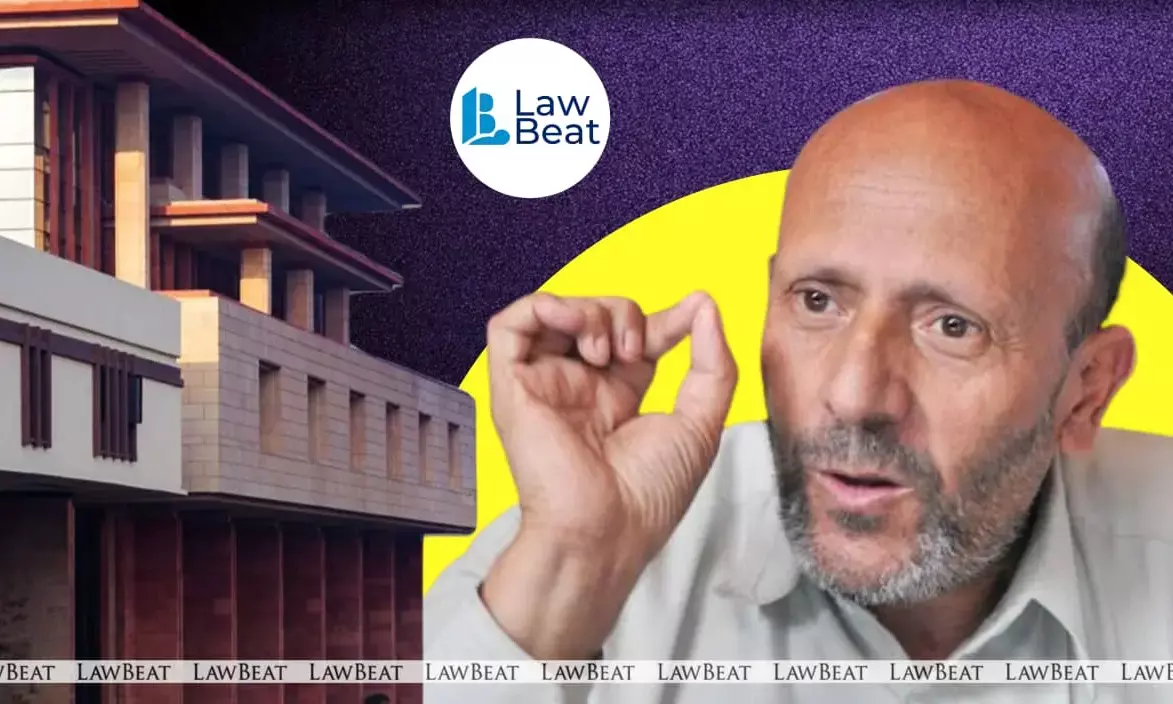Delhi HC Delivers Split Verdict on Engineer Rashid’s Plea Against Costs Imposed for Custody Parole to Attend Parliament

Engineer Rashid’s Parole Cost Case Gets Split Verdict in Delhi High Court
The Delhi High Court on Friday, November 7, delivered a split verdict on a plea filed by Jammu and Kashmir MP Abdul Rashid Sheikh, popularly known as Engineer Rashid, challenging a trial court’s order directing him to bear costs as a condition for being granted custody parole to attend Parliament.
A Division Bench comprising Justices Vivek Chaudhary and Anup Kumar Bhambani delivered a split verdict on the plea.
Justice Bhambani allowed the petition, while Justice Chaudhary dismissed it. In view of the difference of opinion, the matter has been placed before the Chief Justice for appropriate orders.
Pronouncing the verdict, the Court said: “My brother and I have not been able to concur on the manner in which the application is to be disposed of. Therefore, we will render two separate and divergent judgments, and the matter will be placed before the Chief Justice for appropriate directions. Let the matter be placed before Chief Justice.....”
In August, the Court had reserved its order after hearing submissions from Rashid, the Delhi Police, and the NIA.
On August 12, the High Court had asked the Delhi Police to explain the basis of the travel cost imposed on Engineer Rashid as a condition for granting him custody parole to attend Parliament. The counsel appearing for the Delhi Police had explained the calculation of the cost, stating, “He is a high-value target with connections to various terrorist organisations. The number of police officials involved is 15, and the amount has been calculated. He is required to pay it.”
The Court had also been informed that the salaries of the police officials formed part of the cost imposed. Responding, the Court had observed, “This man did not even have his liberty back. He had not been granted interim bail; he was only on custody parole. The jail authorities were travelling with him; he remained in custody. If the jail travels with him, whatever expenses are there, it is for the jail to incur.”
Appearing for Rashid, Senior Advocate N. Hariharan had argued, “What I am trying to persuade Your Lordship is that if custody parole is granted, I should not be burdened with the salary of 15 people.” He had further submitted that Rashid had already been granted custody parole by the trial court, and that order had not been challenged by the NIA.
However, Justice Vivek Chaudhary had remarked, “There is also an additional aspect. We must consider whether a ground for custody parole is really made out in this case. Could it be that custody parole, if granted, would entitle him to attend all sessions of Parliament at all times? If that is so, then what would be the purpose of the settled law, which clearly states that such a person is not entitled to attend Parliament while in custody? That is the question before us, and it is a task we must carefully consider.”
The Court had accordingly reserved its verdict.
In an earlier hearing, the High Court had sought a response from the National Investigation Agency (NIA) on Rashid’s plea challenging a trial court order directing him to pay ₹1.44 lakh per day for travelling to Parliament in custody between July 24 and August 4.
On July 22, the Special NIA Court at Patiala House had granted custody parole to Engineer Rashid to enable his attendance during the monsoon session of Parliament, scheduled from July 24 to August 4, subject to the condition that he bear the travel and security expenses himself.
Previously, Engineer Rashid had approached the High Court seeking custody parole to attend the Budget Session of Parliament. He had argued that he had been allowed to campaign in the elections without objection from the NIA but was not being allowed to fulfil his constitutional duties as a Member of Parliament. Senior Advocate Hariharan, representing Rashid, had also pointed out that a previous order had permitted him to attend the Budget Session for two days.
In September 2024, Engineer Rashid had been granted interim bail by the Rouse Avenue Court to campaign in the elections.
The NIA had registered a case on May 30, 2017, invoking Section 120B of the IPC (criminal conspiracy) and various provisions of the UAPA, 1967, against Lashkar-e-Taiba chief Hafiz Saeed and other separatist leaders, including Engineer Rashid, for allegedly fuelling secessionist activities in Jammu and Kashmir.
For the Petitioner: Senior Advocate N. Hariharan with Advocates Vikhyat Oberoi, Aditya Wadhwa, Nishita Gupta, Shivam Prakash, Ravi Sharma, Jagriti Pandey, Punya Rekha Angara, Vasundhara N., Sana Singh, Aman Akhtar, Vinayak Gautam and Hasnain Khwaja.
For the Respondent: Senior Advocate Sidharth Luthra, Special Public Prosecutor Akshai Malik with Advocates Ayush Aggarwal, K. Saleem, K.P. Rustom Khan and Yatharth Sharma.
Case Title: Abdul Rashid Sheikh v National Investigative Agency
Date: 7 November 2025
Bench: Justice Vivek Chaudhary and Justice Anup Jairam Bhambhani
